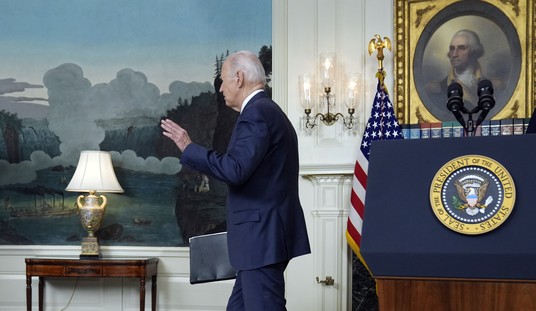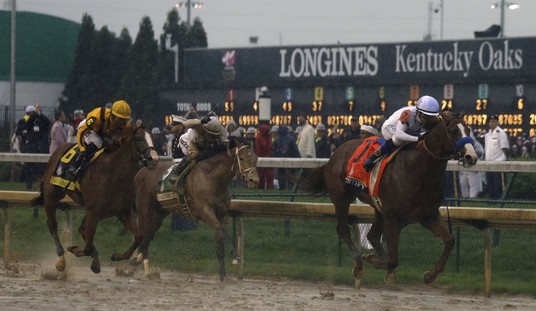One of the dumbest of DC assertions – is that more government regulation doesn’t harm private sector investment. That somehow the higher cost of compliance with government diktats – doesn’t detract from private entities spending money on the areas harmed by the government diktats.
This defies many aspects of Reality – and contributes a great many additional examples to DC’s Department of Duh. One of the very many immutable areas it defies and defiles – is math.
The federal government alone has regulations that cost the private sector $2-trillion-per-year with which to comply. That’s $2-trillion-per-year – that the private sector has to waste on government. Which means the private sector – can’t invest it. Duh.
That’s the one government shoe dropping. The other is the worst aspect of government regulation – the private sector creations we’ll never get to enjoy. Because they never happen – because government regulation drives the private money that would make them possible entirely out of the sectors regulated.

And it stands to reason that the more investment a sector requires – the more damaging government regulation is to said sector.
Think of it as the poker tables on a casino floor: There are a whole lot of $1 tables – because a whole lot more people can afford to play at that ante. The $100,000 tables and players thereon – far fewer and farther between.
One of the most investment-intensive sectors – is the business of building our nation’s Internet networks. Internet Service Providers (ISPs) have spent the last two decades spending $1 TRILLION building our networks – improving us from from 28K dialup to 1 Gigabyte speeds. And ever forward they move us.
These are the $100,000 poker tables. High stakes gamblers, these ISPs be. The absolute last thing you want to do – is add government regulation costs on top of all their buildout costs.
But the Left – is just that dumb. In fact, they’re dumber still: They add government costs – while claiming they’re not adding government costs.
DC remains a very dumb locale. But even from this darkest of places – shards of light emerge.
“A private-sector study conducted earlier this year showed that deploying 5G would generate up to 3 million new jobs and boost the country’s annual GDP by more than $500 billion. But these benefits come at a cost. Telecom companies would face a roughly $275 billion price-tag to deploy 5G over a period of seven years, and the FCC has been slow to drum up significant private-sector investment.”
Ok, begin with the fact that it is not “the FCC (that) has been slow to drum up significant private-sector investment” – it is the private sector companies having that trouble. (This is a seriously dumb sentence.)
But there is no question that 5G will be a huge boon to our economy. In fact, exponentially greater when all the wonderments 5G will allow – are invented and brought to market.
To wit: Netflix was a dying snail-mail DVD-delivery service – until the ISPs created the ability to livestream. Deathbed Netflix – then became an $86 billion company.
Given the tens-of-trillions-of-dollars of economic activity the ISPs $1 trillion of investment has made possible – what’s the holdup here?
“(T)he FCC must find a way to incentivize companies to take the plunge, said FCC Commissioner Brendan Carr, who also spoke at the Bloomberg event. He believes one major way the agency could help curb the costs of building a 5G network is to scale back its regulations on infrastructure deployment.
“Carr said the FCC is currently considering a proposal to streamline the process of building the small cell facilities needed to implement 5G coverage. If the agency were to adopt even some of the proposed changes, he explained, the decrease in regulatory costs would make it profitable for companies to expand broadband access to an additional 26.7 million homes across the U.S.”
Absolutely correct. Less money having to be wasted on government regulation – means more money for network investment. Because…duh.
Additionally helpful would be the FCC not using the very dumb Network Neutrality as a rubric to unilaterally impose archaic, utterly inapplicable 1934 landline phone law onto the Internet (both wireless and wired).
Which is what the Barack Obama Administration’s FCC dumbly did. And the Donald Trump Administration’s FCC is wisely in the process of undoing.
We are sincerely thankful for the latter. But these wide swings into and out from under these massive new regulatory schemes – is just the sort of uncertainty investors loathe.
Almost as much as investors loathe these massive new regulatory schemes being imposed – and then staying permanently in place.
The solution to a dearth of investment – is to treat the desired investment as pleasantly as possible. Like you actually mean what you say – that you want as much of it as possible.
Saying you want investment – and then slamming the investments with massive regulatory schemes – tends to belie what you said about wanting investment.
In the casinos – the house nigh always wins.
In the marketplace, the only winner with government regulations – is government.
The rest of us – lose. Huge.














Join the conversation as a VIP Member